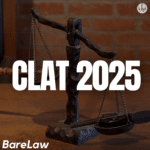
INTRODUCTION:
The appeal is a remedial-based concept that provides an individual a right against unfair order or decree passed by a court. Though the term ‘appeal’ is not defined anywhere under the Code of Civil Procedure appeal in a literal sense is considered a complaint. A complaint to a superior court against a lower court that may have passed unjust order to be reversed or changed. It is considered to be the removal of the case from the lower court to the superior in order to obtain a review or retrial.
GROUNDS OF APPEAL:
The appeal is a proceeding when the higher court questions the order passed by the lower court in lieu of the facts presented. A Memorandum of appeal is a document that carries the grounds on which an appeal is filed. The grounds mentioned in the memorandum are the only claims that are to be considered by courts. It may reverse or modify or remand the matter to the lower court for fresh decisions alongside its directions. Grounds of appeal can be considered as—
- Any decree passed by Judicial or Quasi-Judicial authority.
- Any aggrieved person is not necessarily party to the suit.
- Reviewing authority for entertaining appeals.
SECTIONS OF THE CODE OF CIVIL PROCEDURE INVOLVED:
FIRST APPEAL:
An appeal is filed under Section 96 of the Code of Civil Procedure (CPC) an order or decree passed by the court. Such court shall exercise original jurisdiction and an appeal shall lie before the authorized court. An appeal shall lie against the ex parte order. Any aggrieved party to the decree passed by the court shall have the right to appeal to higher authority designated for the purpose. It attributes single right of appeal. Any person right to appeal who is party to suit. Third party may have right only if they are adversely affected by the same. It further provides remedies available to defendant against whom an ex parte suit is passed. It could be appealed in two ways i.e., against a decree or decree to be set aside. Both can be restored simultaneously. No appeal shall lie against the order or decree passed by court with the consent of both parties.
The failure to appeal against preliminary decree shall act as bar to raise objections against any final decree. The appellate court has no power to determine the reliability of facts that are not confirmed by lower courts. Any appeal that may have been filed against dead person shall have remedy of filing afresh appeal against legal heirs. It provides for an appeal to lie before Higher Court from a decree passed by Subordinate Court. As mentioned under Section 100 of CPC except provisions speaking opposite.
Right to Appeal though conferred under Code of Civil Procedure it does provides for any limitation period for filing of appeal. The Limitation Act of 1963 provides for limitation for the same. It provides that any appeal can be brought before High Court within 90 days. If any appeal shall lie before any other court, it shall be made within 30 days after passing of such order.
SECOND APPEAL:
Section 101 read as Second appeal shall lie on grounds of—
- Appeal should involve substantial question of law—
- May be presented by party itself via memorandum.
- The court itself formulate such question.
- Appeal may be brought forth where the decree passed was ex parte.
Substantial Question of Law: The test that determines whether question raised is substantial or not—
- Whether it is of general public importance?
- Whether it affects the right of party?
These questions are not decided by any court so it is open for opinions. Under this provision the court must be satisfied that case does not involve mere question of law. the reason must be recorded for allowing such case.
High Court may determine any issue that is considered necessary for its disposal. That issue must either be determined wrongly or not determined previously. A decree of compromise was questioned before court of law to be achieved by fraud. The same question was overlooked by subordinate court and High Court have power to look into same by purview of CPC . The court further clarified that court cannot partly admit or partly reject any appeal.
The application for second appeal shall not be accepted in case—
- Subject matter is in court of small causes.
- Value of suit does not exceed Rs. 1000.
Whereas it was held by court if the fact was ignored by lower court that may affects decision of case. In such case the appellate court shall have jurisdiction to deliberate up on findings of case.
HAVE NO RIGHT TO APPEAL:
- Those who have relinquished their right to appeal as required by agreement.
- The party which has availed benefit under order.
- The parties who have sign consented decree.
- Parties whose factum has not been formulated yet.
- Parties involve in small cause cases.
- Cannot file an appeal against deceased person.
CONCLUSION:
The application for appeal may put a stay on proceedings for implementation of decree passed but the grounds must be appropriate. The appeal may be refused if no merit on prime facie was found but discretion must be exercised judiciously not in arbitrariness. A decree passed by trial court must be merged with appellant court’s decree. Because there could not be more than one decree for same subject matter. The right of appealing is not inherent and must be created in express terms via statute.



